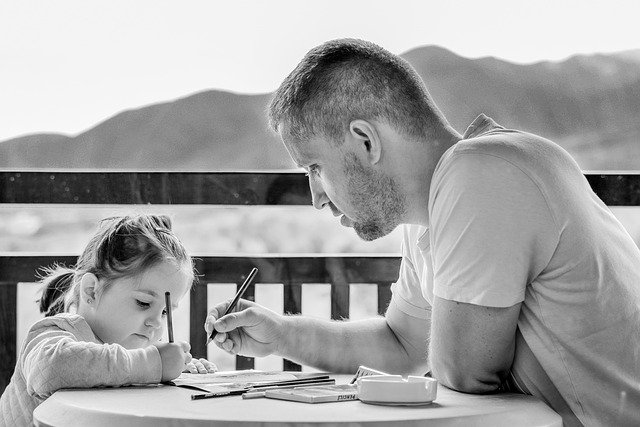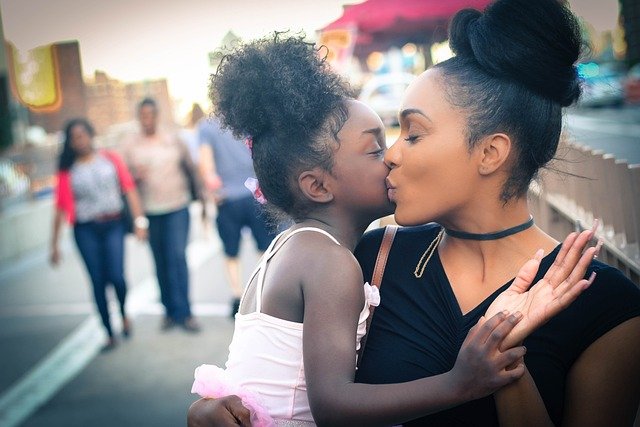Parenting is one of life’s most significant experiences, yet it does not come with instructions. Every kid is different, and each parent encounters their own set of obstacles. However, knowledge, awareness, and ongoing learning enhance and strengthen the parenting process. In this post, we discuss the significance of learning about parenting and provide practical advice on how to begin this transforming journey.
Understanding the importance of parenting education.
Parenting education is vital for various reasons, and the advantages extend well beyond the particular family unit:
Building Strong Foundations: Parenting education gives the information and skills required to provide solid groundwork for healthy child development. Understanding child psychology concepts, developmental stages, and successful parenting practices allows parents to establish caring settings that promote their kid’s growth and well-being.
Improving Communication: Clear communication is critical for developing successful parent-child interactions. Parenting education teaches parents communication skills like active listening, empathy, and nonviolent communication, allowing them to connect with their children on a deeper level and negotiate difficult circumstances with compassion and understanding.
Promoting Positive Discipline: Discipline is about educating, leading, and establishing limits, not punishing. Parenting education provides insights into constructive disciplining strategies that emphasize empathy, consistency, and respect, allowing parents to set clear expectations and promote responsible conduct in their children.
Parenting education promotes self-reflection and introspection, enabling parents to question their own views, values, and parenting techniques. By reflecting on their parenting techniques and soliciting input from others, parents may find areas for improvement, adjust their approach to fit their child’s changing needs, and provide a caring and supportive family atmosphere.

Practical Tips for Learning About Parenting.
Here are some practical recommendations for parents who want to improve their parenting abilities via learning.
Seek Reliable options: Look into a range of credible parenting education options, including as books, articles, online classes, and seminars. Seek for materials that are evidence-based, practical, and consistent with your parenting philosophy and beliefs.
Attend Parenting Workshops and Support Groups: Take advantage of parenting workshops, seminars, and support groups available in your area or online. These educational activities provide useful insights, practical advice, and opportunity for networking and peer support.
Participate in Continuing Education: Stay current on the newest research and innovations in child psychology, parenting practices, and family dynamics. Consider taking continuing education classes, subscribing to parenting periodicals or newsletters, and following credible parenting websites and podcasts.
Embrace the ideals of mindful parenting, which include being present, nonjudgmental, and compassionate with your kid. Mindful parenting promotes parents to become more aware of their thoughts, feelings, and responses, enabling them to respond to their child’s needs with better sensitivity and empathy.
Connect with Other Parents: Join parenting groups, forums, or social media communities to connect with other parents, exchange experiences, and learn from one another. Building a supporting network of other parents allows for mutual encouragement, guidance, and companionship along the parenting experience.
Dive Deeper into Parenting Education: Nurturing Growth and Resilience
Parenting education is a dynamic and diverse path that provides continuous possibilities for development, learning, and self-discovery. Let’s go further into the importance of parenting education and look at more techniques for parents to improve their knowledge and practice of successful parenting.
Harnessing the Power of Parental Education
Parenting education illuminates the route to competent and compassionate parenting. Here are a few more reasons why investing in parenting education is worthwhile:
Empowering Parents: Parenting education provides parents with the information, skills, and confidence they need to handle the pleasures and difficulties of parenting. Parents feel more prepared to meet their children’s different needs and foster their development when they have access to evidence-based knowledge and practical techniques.
Promoting Healthy Relationships: Effective parenting is based on trust, respect, and open communication. Parenting education teaches how to strengthen parent-child ties, develop emotional intelligence, and resolve disagreements constructively. By emphasizing good interactions and meaningful connections, parents establish the framework for lifetime relationships based on love and comprehension.
Cultivating Emotional Intelligence: Emotional intelligence is a foundational component of good parenting, allowing parents to comprehend, express, and manage their own emotions while empathizing with their children’s feelings. Parenting education provides methods and approaches for developing emotional intelligence in both parents and children while also building empathy, resilience, and self-awareness within the family unit.
Addressing Diverse Needs: Each kid is unique, with their own strengths, struggles, and distinctive requirements. Parenting education acknowledges the variety of children and families and offers solutions for fulfilling the needs of children of various temperaments, skills, and backgrounds. By embracing diversity and cultural awareness, parents may provide loving situations in which all children feel valued and encouraged.

Practical Strategies for Lifelong Learning.
Here are some more practical techniques for parents to improve their knowledge and practice of good parenting:
Stay Curious: Approach parenting with curiosity and amazement, seeing each new experience as a chance for learning and development. Maintain an open mind, be open to new ideas, and be prepared to experiment with diverse approaches to parenting and childrearing.
Reflective Parenting: Take time to consider your parenting experiences, examine your thoughts, emotions, and responses to different circumstances. Journaling, meditation, or frequent self-reflection activities may help you understand your parenting style, find areas for growth, and celebrate your accomplishments along the road.
Seek Professional Help: If you face difficulties or have doubts regarding your child’s development, do not hesitate to seek assistance from trained specialists such as physicians, therapists, or family counselors. Professional advice may provide confidence, clarity, and specialized suggestions suited to your family’s specific need.
Model lifetime Learning: Set an example for your children and show them the importance of lifetime learning. Share your interests, hobbies, and experiences with them, and inspire them to pursue their own passions and curiosity. Accept chances for shared learning and development as a family, cultivating a culture of inquiry, exploration, and respect.
Exploring Advanced Parenting Techniques: Managing Complex Parenting Situations
As parents go through the parenting education process, they face a variety of complicated circumstances and obstacles that need nuanced approaches and sophisticated tactics. Let’s look at some of these advanced parenting tactics and how they might help parents traverse the highs and lows of motherhood with knowledge and grace.

Accepting Positive Discipline
Positive discipline is a more sophisticated parenting style that emphasizes educating, encouraging, and empowering children rather than punishing or coercing. It focuses on empathy, respect, and teamwork, creating a compassionate and supportive atmosphere in which children may learn from their errors and acquire self-control.
Setting clear and consistent limits while being flexible and understanding is an important part of constructive discipline. By providing strict but fair rules and penalties, parents give structure and direction while respecting their child’s autonomy and uniqueness. Positive discipline also urges parents to utilize natural and logical consequences to teach children essential life skills and promote responsible conduct.
Developing Emotional Regulation
Emotional regulation is an important ability for both parents and children, allowing them to properly regulate their emotions and react to difficult circumstances with poise and sensitivity. Advanced parenting education stresses the need of developing emotional regulation skills via mindfulness, self-awareness, and empathy-building activities.
Parents may demonstrate appropriate emotional control by identifying and accepting their own feelings while responding calmly and assertively to stressful circumstances. Parents may teach their children vital emotional regulation skills by practicing active listening, empathic communication, and dispute resolution.
Promoting independence and autonomy.
As children grow and develop, promoting individuality and autonomy becomes more crucial. Advanced parenting strategies aim to progressively empower children to make age-appropriate choices, accept responsibilities, and develop problem-solving abilities.
Parents may help their children develop independence by giving them options, fostering autonomy, and allowing them to make decisions and express themselves. Allowing children to experience the natural consequences of their choices, as well as offering advice and assistance when necessary, helps them build confidence, resilience, and self-efficacy.
Navigating Complex Family Dynamics.
Family relationships may be complicated, particularly in mixed families, co-parenting arrangements, or circumstances including divorce or separation. Advanced parenting education teaches skills for negotiating complicated family dynamics with sensitivity, empathy, and effective communication.
Parents may maintain continuity and stability for their children by prioritizing open and honest communication, establishing clear limits and expectations, and collaborating with co-parents or family members. Seeking help from family therapists, mediators, or support groups may also give important direction and perspective during difficult times.
Harnessing Advanced Parenting Techniques for Long-Term Impact
As parents dig further into advanced parenting education, they discover a plethora of tools and insights that will help them navigate the difficulties of motherhood with confidence and compassion. Let’s look at some more sophisticated parenting strategies and their enormous effects on family relations and kid development.
Building Strong Family Bonds
Advanced parenting approaches stress the need of forming strong family relationships based on trust, communication, and mutual respect. Parents may build a feeling of connection and belonging within their families by spending quality time together, participating in shared activities, and developing rituals and traditions that reinforce family values and identity.
By cultivating a supportive and loving home atmosphere, parents provide the groundwork for good relationships and emotional well-being. Strong family relationships provide children a feeling of security, belonging, and unconditional love, which is critical for their social, emotional, and cognitive development.

Promoting Lifelong Learning.
Advanced parenting education fosters a culture of lifelong learning and personal development in the family. Parents demonstrate the importance of education and intellectual curiosity by following their own interests and hobbies and participating in continual learning experiences with their children.
By fostering a home atmosphere that emphasizes learning, discovery, and intellectual curiosity, parents nurture in their children a love of learning that transcends beyond the school walls. Encouraging youngsters to ask questions, explore new ideas, and follow their interests cultivates a lifelong appetite for knowledge and enables them to attain their greatest potential.
Cultivating resilience and adaptability.
tenacity is an essential trait that enables youngsters to face life’s hardships with tenacity and hope. Advanced parenting practices emphasize resilience and flexibility in children by teaching them coping skills, problem-solving solutions, and emotional management techniques.
Parents may help their children build resilience by encouraging them to confront difficulties, learn from failures, and cultivate a growth mindset that sees failure as a chance to learn and grow. Parents model resilience and persistence in their own lives, demonstrating the value of resilience in overcoming challenges and reaching success.
Building a Culture of Empathy and Compassion
Empathy and compassion are important abilities that help children develop good interpersonal skills and form meaningful connections with others. Advanced parenting education highlights the need of instilling empathy and compassion in children by educating them to comprehend and accept the viewpoints and experiences of others.
Parents may help their children develop empathy and compassion by modeling caring and sympathetic conduct, supporting acts of kindness and generosity, and promoting empathy-building activities like volunteering and community service. By cultivating a culture of empathy and compassion inside the family, parents establish ideals of kindness, empathy, and social responsibility in their children, which will influence their interactions with others throughout their lives.
Conclusion: Accepting the Journey of Advanced Parenting.
Finally, advanced parenting approaches help parents build caring, supporting, and rewarding family situations that promote their children’s holistic development. By leveraging the power of strong family relationships, lifelong learning, resilience, and empathy, parents set the groundwork for their children’s success, happiness, and well-being.
As parents continue to research and practice sophisticated parenting approaches, they contribute to the continual development and evolution of their families and themselves. Parents realize the full potential of their parenting experience by using the power of knowledge, compassion, and continuous development to leave enduring legacies of love, understanding, and resilience for future generations. Read more



